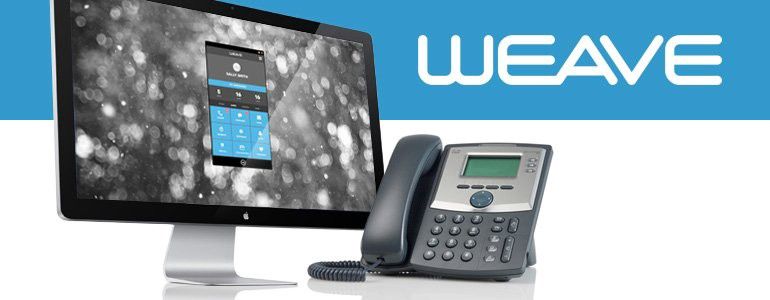Entrepreneurship, specifically in the software and technology space, is what really excites me.
Growing up, Brandon Rodman, Founder and CEO of Weave, always wanted to be a dentist. But after shadowing a dentist while attending BYU, Rodman soon realized it wasn’t the right path for him at the time.
“Entrepreneurship, specifically in the software and technology space, is what really excites me,” Rodman told Beehive Startups. “Being able to marry dentistry and technology has been a dream come true.”
Weave is the perfect example of a startup finding a problem to solve in a certain niche market, figuring out the right solution, and then knocking that solution out of the park. The Utah-based company initially set out to solve retention scheduling for dental offices, but soon realized there was a much bigger need in the dental space that wasn’t being addressed.
“It was definitely an evolution,” said Rodman. “It wasn’t a full pivot, but a shift of focus. We knew that there was a bigger need for the software component and it would allow us to create a stronger foundation for our company and our customers.”
As a telephony platform, Weave’s software allows a dental practice to integrate their phone service with their practice management software, allowing the dental office to accomplish more tasks in less time.
“When a patient calls a dental practice using Weave, a small pop-up will appear on the employee’s desktop telling the employee everything about the patient and showing them a task list of the specific items that they should take care of while the patient is on the phone,” said Rodman.
Weave replaces a dental practice’s phone service, and integrates SMS, email integration, and voice all in one easy-to-operate interface.
“Weave allows any employee, even if it is the employee’s first day on the job, to instantly know the person on the other line, all of their needs, and to be able to quickly and effectively complete multiple revenue generating tasks,” said Rodman. “The part of our service that really differentiates us from anyone else is our ability to sync up with their already established practice management software.”
Another advantage to using Weave is the company doesn’t charge per line. Offices that use Weave’s software get unlimited lines, local and long-distance calling, and unlimited text messaging (sending and receiving).
While Weave may have started by marketing their product to dentists, the software was intentionally designed to be commutable to other industries — something the startup plans to test in the coming months.
While Weave is likely more established than most startups accepted into Y Combinator, Rodman believes the accelerator can provide value to companies at almost any stage.
“Their mentoring, support, and connections are unrivaled,” said Rodman. “We decided to apply because we needed a catalyst to jump-start our company and accelerate our growth. Y Combinator has a huge network of alumni that have scaled their businesses to massive proportions. They will be a valuable asset as we grow. Someday, we hope to be able to return the favor to other companies looking for early growth and traction.”
To participate in Y Combinator, Rodman has moved to Silicon Valley for the next three months, which made us wonder if he had plans to relocate Weave to California to be closer to investors.
“It’s tempting, and it probably wouldn’t take much to get me to move to Silicon Valley,” said Rodman. “It is an amazing place. But I don’t think we will move our whole company out there. Utah’s ecosystem is growing at a very quick rate, and will be a great place for our company to scale and build a highly-talented team.”
Having already attracted over 200 paying customers, and, according to Rodman, growing at a rate of 10 percent each week, Weave is entering Y Combinator with a head of steam. According to an article published in TechCrunch earlier today, “the startup has raised over $750K in seed funding from Y Combinator, the YC VC fund, and friends and family.”
What are some of the lessons Rodman has learned since founding Weave?
“I’ve learned a lot of lessons — some of which were very difficult,” said Rodman. “The biggest lesson that I have learned is to follow your instincts, and to have faith in your own ability to adapt and overcome the challenges that you will face. There will always be problems — both good and bad problems. People are amazingly resilient, and if you approach problems with the right mentality, you can overcome nearly anything you encounter.”
Rodman said he has made a lot of mistakes. The type of mistakes anyone who has started a company would understand.
“The goal is to try not to make the same mistakes you see others make, and to quickly adapt or adjust when you have made a mistake,” said Rodman.
Having experienced many of the growing pains of building a business, Rodman had some advice for other entrepreneurs who may be interested in starting their own company.
“Build stuff people want. Launch quickly to validate whether or not people will actually want what you have built,” said Rodman. “Talk to your customers A LOT. Focus on growth. If you can generate consistent growth week over week, you will have a lot of options in how to grow your company, who to partner with, and which investors to accept money and mentorship from. Without fast growth, everything is much more difficult.”
Published 2/19/2014






